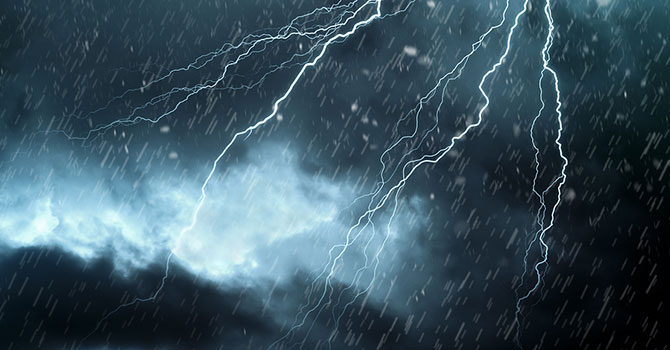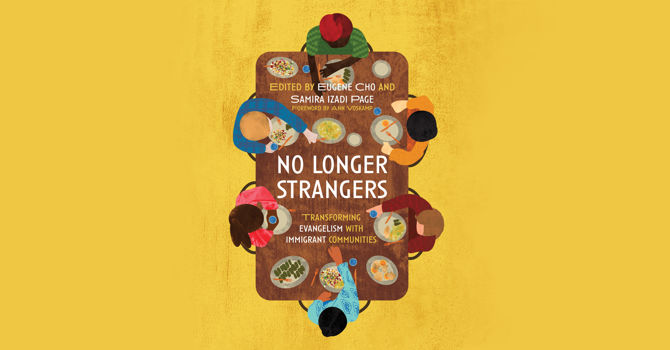Storm cellars were the spring social gathering places in the small West Texas town where I grew up. In March and April, sometimes into May or even June, our family, along with most other folks in town, frequently made our way to nearby storm cellars to wait out the inevitable high winds, hail, thunderstorms and tornadoes. It was part of the small price we paid for living in such a paradise of brown tumbleweeds and blowing dirt, squatty mesquite trees and prickly pear cactus.
Our preferred storm cellar was at my mother’s parents’ house -- about a five-minute, harrowing drive through blowing wind and dirt and rain, hopefully completed before the hail started, and certainly before any tornadoes were sighted. My dad would screech us into the crowded driveway, and our family of four would sprint into my grandparents’ kitchen, packed full of kinfolk and neighbors who all knew that my grandmother’s cellar was the safest in town.
My grandparents had bought the house back in the 1940s explicitly because the concrete storm cellar had been poured before the concrete foundation of the house was poured over it. A door and stairs led directly from the kitchen down into the cellar, and another big, reinforced outside door opened up from the cellar into the backyard. Combining the luxuries of direct entry from the house and a double layer of concrete, this cellar was clearly the best place to wait out a tornado.
Of course, that meant that half the neighborhood gathered there for every storm. It also meant that storms were social occasions. Usually, some of the older men were out on the porch watching the storm. Once, when I was young enough to watch between the pant legs of my grandfather, I could see the dipping funnel of a tornado through the lightning, a sure sign it was time to go down into the cellar -- and a memory that still gives me the shivers today.
It was loud inside the kitchen, with the National Weather Service blaring on the radio and people talking and laughing, and there was always the smell of coffee percolating and cigarettes being smoked. If my grandfather came in and gave the warning, everyone filed down the narrow, steep stairs into the depths and found a place to sit among the rows of chairs. Doors would be shut and clamped, and we would begin the wait -- waiting to see what would be waiting for us outside after it was over. Maybe just some downed limbs and blown debris. Maybe worse. So we waited and talked. We waited and listened, especially if the wind grew exceptionally louder or hail was falling. And the grown-ups smoked those cigarettes. Inside the closed storm cellar, the air was so thick it was difficult to see, much less breathe.
After a while, when the storm had grown quiet, my grandfather would crack open the door to glimpse the status outside. If it looked safe, he would push open the large exterior door, and in would come a mighty rushing wind of cool, fresh air, whooshing out the cigarette smoke, reinvigorating us with the exhilaration that comes from fresh oxygen and the knowledge that we survived one more time.
It’s been 50 years or more, but that storm cellar still defines Pentecost for me: lots of people waiting in a closed-in, stuffy space, mostly afraid but covering it over with chatter and cigarettes. When the doors are opened, there is no gentle breeze or programmed air conditioner. Instead, the Spirit blows in with thunderstorm force, blowing out candles and lanterns, clearing the staleness, and enabling us to breathe again!
That is Pentecost in my mind. It does not come regularly. And in my experience, it does not come often. But when it does, everyone knows. And every time, it both scares us and invigorates us.
I remember a time back in the early ’90s when our congregation was no more than 40 people and we hosted a prayer service for people whose lives had been touched by AIDS. We did not know what to expect. We were scared that folks would not show up -- and we were scared that folks would show up. In those days, the only persons we knew who had HIV/AIDS were gay men and IV drug users, neither of which was a promising demographic that could help a struggling church grow.
When the time arrived and we threw open our doors, in they came. All sorts, all colors, in all kinds of conditions -- limping, in wheelchairs, leaning on one another, young parents with babies who were HIV-positive from blood transfusions, gay men afraid to set foot inside a church. We went from 40 people to nearly 100 that night, and together we prayed, read Scripture and sang hymns, cried, and prayed and sang some more. Then we gathered around tables heaping with food and ate together. And after it was over, the few of us still there sat in wonderment.
What had just happened? We were exhausted. We were scared. We were exhilarated. And we had no doubt that it was a Pentecost moment. This was the Spirit, and our church was different from then on.
Another time, a hurricane -- yes, a hurricane -- had blown through East Texas, and our church opened its doors to evacuees from Houston, to our neighbors and to each other. Power was out all over town except for at the church. So for a week, we lived among 40 or 50 people who were together, sharing all things in common. Day by day, we broke bread together (and steaks, roasts, and speckled trout from everyone’s freezers) and ate with glad and generous hearts, serving others around town, clearing debris and doing child care. Strangers showed up, and we discovered they were friends we had never met before. It was hard and scary and invigorating. It was the Spirit.
More recently, our congregation was taking tentative steps toward creation care and climate justice. We quit Styrofoam and drove Priuses and showed films. At one film, four young activists showed up who were part of an effort to block the proposed Keystone XL pipeline, which was to go through nearby.
We invited them to church. The next week, a dozen showed up, and the next, 25. All sorts and all colors, mostly young, they had been camping out and hadn’t bathed or washed clothes in weeks. But for the next two years, they were in church every Sunday, if they were not in jail. We washed their clothes, housed them, ate with them, met with them, supported them when they got arrested, visited them in jail and testified at their court hearings. And if you ask anyone in our church to this day, they’ll tell you it was the Spirit of God at work.
We can’t plan Pentecosts. But we can get ready for them. Pentecosts are always hard and most always scary, because we don’t know what might happen, and because we know we’ll be changed. Most of us feel overwhelmed enough as it is -- with children, aging parents, illnesses, job problems, long hours, mounting bills. We put our noses down and just keep going.
But a Pentecost comes along, and suddenly we are looking up. And here’s the thing: we’re looking with other people of all sorts and all colors who are thrust into our lives. Without Pentecost, we never know how stale and closed-in our lives have become. But with Pentecost, the winds of the Spirit rush in and empower us to weather the storms together.








